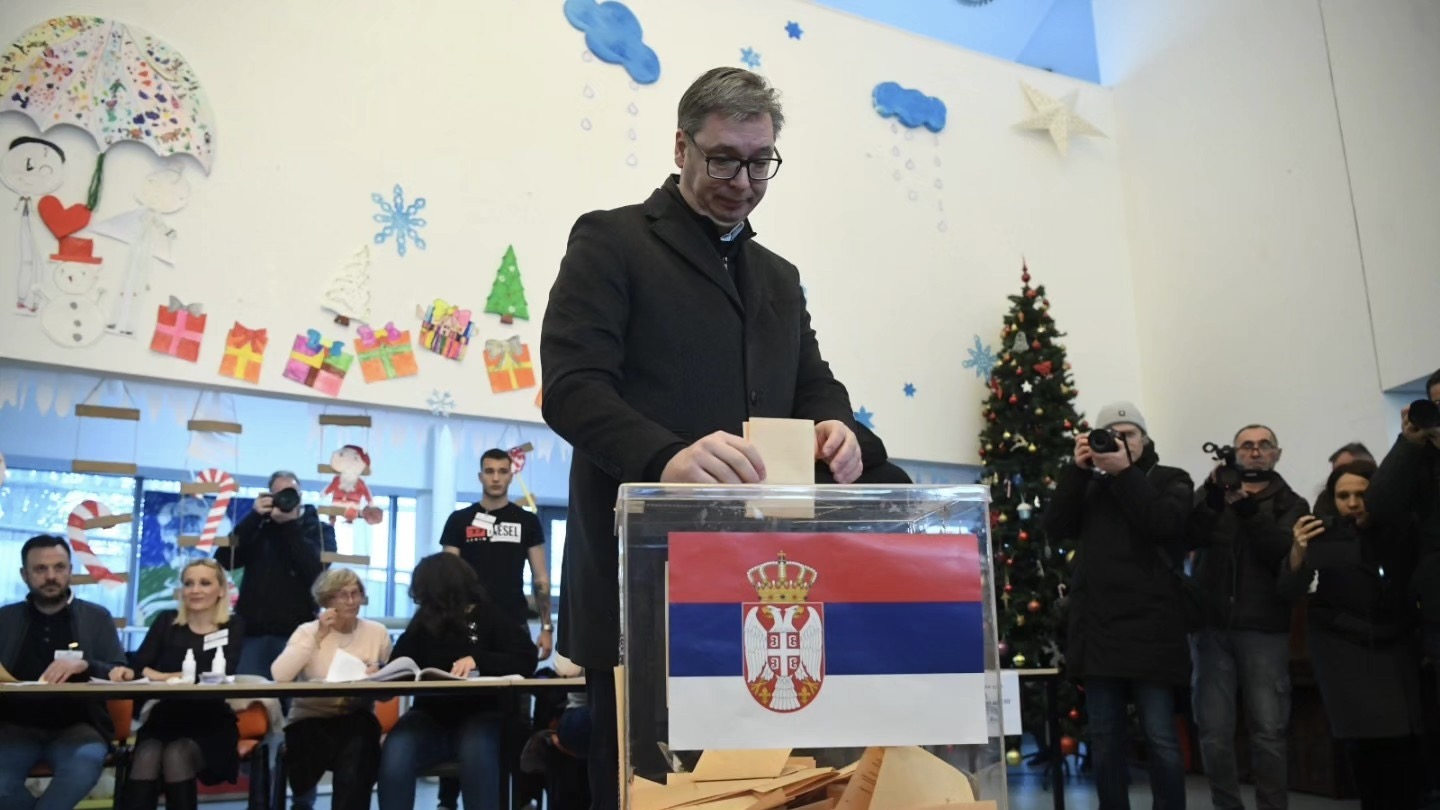In the elections held for the 250 seats of the Serbian National Assembly on December 17, the incumbent Serbian Progressive Party (SNS)-led coalition headed by Serbian President Aleksandar Vucic retained the majority in the parliament, winning 128 seats and 47% of the votes. The pro-European Union, anti-corruption platform called Serbia Against Violence (SPN) secured 65 seats and 24% of the votes.
The coalition led by the Socialist Party of Serbia (SPS) managed only 18 seats, while right-wing populist groups like the National Democratic Alliance (NADA) and the pro-Russian group: We: The Voice from the People got 13 seats each. The rest of the seats were secured by minority lists including the Russian Party which got one seat with the backing of the New Communist Party of Yugoslavia (NKPJ).
While the SNS coalition retained the majority in the provincial assembly of Vojvodina and the city assembly of Belgrade, Serbia Against Violence (SPS) made significant gains by securing 30 seats in the 120-seat Vojvodina Provincial Assembly and 42 seats in the 100-seat Belgrade City Assembly.
While Serbian President Aleksandar Vucic celebrated the results of the elections which had been seen as a referendum on Vucics’ popularity, the opposition alliance Serbia Against Violence (SPN) made allegations of electoral fraud, and protested the results on Monday December 18.
Milos Karavezic, a leader from the Communist Youth League of Yugoslavia (SKOJ), told Peoples Dispatch on December 18, that “communists in the country affiliated to NKPJ and SKOJ participated in the elections for the National Assembly on the list of the Russian Party. These elections marked a turning point since the working class in Serbia had an opportunity to vote for the communist candidates for the first time after 23 years. The list of the Russian Party secured 1 seat in the Parliament, which would not be possible without the support of the communists.”
For the past several years, working class sections in the country have carried out protests against the Vucic government over the issues related to minimum wage, and inaction on the spike in far-right attacks in the country. The environmental groups are also at loggerheads with the government over granting licenses to lithium mining projects.
“Unlike bourgeois parties, our struggle doesn’t end with the elections – we will continue to gather a wide front of socialist and patriotic forces that will lead an effective struggle for workers’ rights, against capitalist exploitation and imperialism,” he added.





